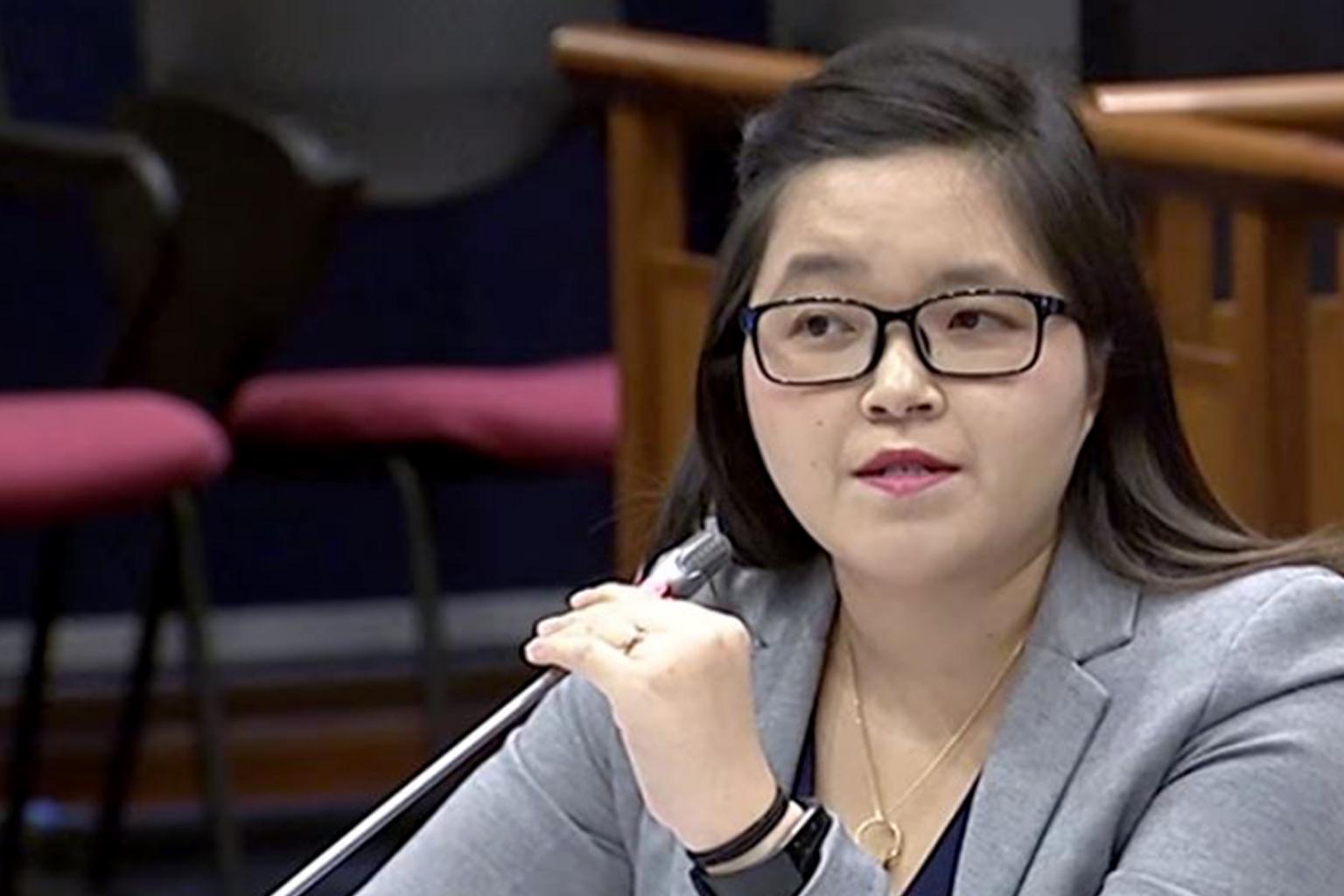New Naratif co-founder Kirsten Han responds to Shanmugam's remarks on foreign interference
Sign up now: Get ST's newsletters delivered to your inbox

Co-founder and editor-in-chief of New Naratif Kirsten Han said New Naratif is supported by membership, donations and grants. It accepts foreign grant money after "following applications through the proper channels".
PHOTO: GOV.SG/YOUTUBE
SINGAPORE - The co-founder and editor-in-chief of New Naratif, Ms Kirsten Han, has said that the media platform accepts foreign grant money but does not let contributors influence its editorial decisions.
She was responding to Home Affairs and Law Minister K. Shanmugam's comments on Wednesday (Sept 25) at a conference on foreign interference tactics and countermeasures in which he said that online news sites which receive foreign funding could be used as tools to advance foreign interests.
He said that Ms Han had said on video that Singapore has failed compared to Hong Kong because 500,000 people do not march on the streets and that she wants to change that through classes run by New Naratif.
In her blog post on Thursday titled "On accusations and gaslighting", Ms Han said New Naratif is supported by membership, donations and grants. It accepts foreign grant money after "following applications through the proper channels".
"We don't take money if the funder wants to influence or control our editorial or operational decisions."
She said that New Naratif operates "far more transparently and with more accountability than our accusers", and that she and co-founder and historian Thum Ping Tjin are accessible through e-mail and regular open meetings.
"We also publish regular transparency reports where we openly talk about our achievements and challenges, and share full financial statements so people can see what money we have and how we spent it," she added.
She said that while tackling foreign interference is not an objectionable goal, "the way my fellow activists and I have been smeared on social media and in the mainstream press rings alarm bells over who and what is going to be the target of such legislation".
She said that her references to Hong Kong in her November 2016 speech at a forum on activism, civil disobedience and social movements have been "taken completely out of context".
She said that her point was that "500,000 people on the streets is not a useful KPI (key performance indicator) to use in measuring the strength and maturity of a country's civil society - the communities, the networks, and the solidarity between them are far more important".
"These are the things that you need regardless of whether you have 500,000 people on the streets to protest or not. If there are democratic processes that work, then great, there's no need for half a million people to protest. Problem solved. But you're still going to need a mature and resilient civil society to be part of a functioning democracy."
She attached a full transcript of her speech to her post and one part of the transcript on Hong Kong reads: "I think it's important for us to acknowledge that, because a social movement is not 500,000 people (in the streets)... it's all the work that goes into potentially one day having 500,000 people in the streets. And that work is as, if not more important, than getting huge numbers to attract the media attention, because the groundwork, that foundational work is what sustains the network after the 500,000 people go home."
In his keynote address at the conference on Wednesday, Mr Shanmugam pointed out that Ms Han, Dr Thum, political dissident Tan Wah Piow, civil-rights activist Jolovan Wham and graphic novelist Sonny Liew met Malaysian Prime Minister Mahathir Mohamad in Kuala Lumpur last year.
He said that they urged the Malaysian leader to bring democracy to Singapore and other countries, with Dr Thum saying Singapore should be part of Malaysia and celebrate independence on Malaysia Day on Sept 16.
Referring to New Naratif, a self-described movement for democracy and freedom of expression in the region, Mr Shanmugam said: "Everyone is entitled to their views, however reasonable or unreasonable. But my primary point is: Is it right for foreign funding to be received in order to advance these viewpoints?"
He also gave several examples of how foreign interference has destabilised states, from ancient China, Rome and Greece, to the 2016 United States presidential elections.
He noted that there are responsible media - both Singaporean and foreign - that employ foreigners. The assumption is that the media will have some ethics, but this can of course be exploited.
"But they are subject to a framework, foreign as well as Singaporean," he said. "In every country, there is a framework for how the media behaves."
But some online news sites tap anonymous contributors, leaving them open to being used as tools by foreign interests to publish inflammatory articles that attack and deepen divisions within a country.
"They have no interest in sociopolitical stability within a country," he said. "Their only interest is in eyeballs."


